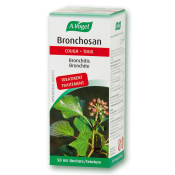The role of mucus in the body
Produced naturally by your body, mucus plays an important role: working as your body’s “oil,” mucus keeps the “motor” well lubricated. It forms a protective layer in your mouth, nose, sinuses, throat, lungs, stomach and intestines to prevent them from getting dehydrated.
Mucus also creates a protective barrier to keep bacteria and viruses from getting into your body, and contains antibodies that help your body recognize and eliminate unwelcome microscopic guests. Your body has mucus all over it, and that’s a good thing!
But sometimes its composition changes and it become thicker. When that happens, its presence in your body makes itself known. It can happen in response to an allergic reaction (for instance, hay fever), after eating or drinking dairy products (if you’re lactose-intolerant) or when you’ve got a cold.
Green phlegm and yellow nasal secretions
Mucus can also change colour. Many people think that yellow or green mucus indicates the presence of bacteria, but that’s not always the case. The colour can also be due to the presence of white blood cells (neutrophils), which contain a green enzyme. Mucus that contains a lot of these enzymes can become greenish.
But the opposite is also true: mucus can be thin and clear, even if you’re suffering from a serious bacterial infection. Green mucus is typically thick and somewhat solid.
8 natural remedies to clear your airways
1. Ginger and honey
Ginger has powerful therapeutic properties, which is why it’s often used to treat colds. Ginger helps relieve coughs and soothes your airways, while working wonders to dislodge stubborn mucus.
Honey has antibacterial and antifungal properties, perfect if you have a sore throat or cold and are clogged up with phlegm. Honey deposits a protective layer on your throat, reducing irritation and allowing your mucous membranes to heal.
Home remedy recipe: Warm 2 tablespoons of honey, making sure its temperature doesn’t exceed 40°C, because hotter than that, honey loses its therapeutic effectiveness. Add a teaspoon of grated ginger. Have two tablespoons daily for three days. If the symptoms persist, consult a health professional.
2. Gargling with salt water
Stir 1 tablespoon of table salt into a glass of hot water. Gargle with the solution for a few minutes, up to three times a day, but don’t swallow! Gargling for a few minutes will make your throat feel a lot better.
3. Turmeric
Turmeric is a true super-food. It relieves pain, reduces inflammation and increases the body’s resistance—just what the doctor ordered!
Mix half a teaspoon each of black pepper and turmeric in a glass of hot non-dairy milk, and add a scant teaspoon of honey. You can drink this yummy concoction daily until the mucus clears up.
For this recipe, don’t use cow’s milk: dairy products can make mucus thicker, exactly the opposite of what you’re hoping to achieve.
4. Hot drinks
A good hot cup of herbal tea will help dilute stubborn phlegm. If you’d like to get rid of your phlegm, a nice cup of mint, thyme, chamomile or echinacea tea is a good option. Our Echinaforce Hot Drink, with echinacea and elderberry, works wonders against persistent mucus. Just add one teaspoon to a cup of hot water and enjoy!
5. Inhaling essential oils
You can keep your mucus membranes moist by inhaling steam made from lightly salted water and essential oils of plants such as eucalyptus and rosemary. You can also put a few drops of these essential oils on a handkerchief and breathe deeply to clear your nasal passages.
6. A combination of echinacea, sage and peppermint
If you’re got a frog in your throat, Echinaforce Sore Throat Spray could help you clear things up lickety-split! This unique combination of echinacea, peppermint and sage acts fast to freshen and soothe sore throats.
7. Thyme and ivy
A tincture combining ivy and thyme can help thin phlegm to facilitate expectoration and help reduce bronchial spasms. These plants work fast to dislodge secretions. If you’re still coughing, you’ll cough less, and when you do, your cough will be a productive one.
8. Spruce buds
If you find yourself with a persistent cough, spruce bud extract could do you a world of good. Indicated for the relief of symptoms associated with mucus secretions in the airways, Santasapina Soothing Syrup helps eliminate substances that can obstruct the lungs, thanks in no small part to the antiseptic and antibacterial properties of spruce buds.
The natural sugars it contains not only help dilute secretions for around two hours, facilitating expectoration, but they also give it a pleasant taste.





